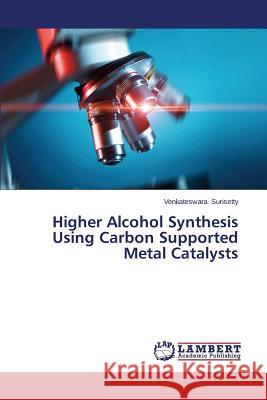Higher Alcohol Synthesis Using Carbon Supported Metal Catalysts » książka
Higher Alcohol Synthesis Using Carbon Supported Metal Catalysts
ISBN-13: 9783659575051 / Angielski / Miękka / 2014 / 360 str.
The demand for mixed alcohols has grown since ether compounds were banned as gasoline octane improvers in North America. Molybdenum-based catalysts in sulfide form are an attractive catalyst system for the conversion of synthesis gas to alcohols, due to their excellent resistance to sulfur poisoning and high activity for the water-gas shift reaction. The higher alcohols activity over these catalysts is low, due to the formation of hydrocarbons and CO2. Although a number of catalysts have been developed for this purpose, not any are used commercially at this time. The main objective of this work is to develop a catalyst system that is capable of selectively producing higher alcohols, particularly ethyl alcohols from synthesis gas. In the present series of studies, the investigation of an alkali-promoted trimetallic Co-Rh-Mo catalyst system supported over multi-walled carbon nano-tubes has led to improvements in product stream composition.
The demand for mixed alcohols has grown since ether compounds were banned as gasoline octane improvers in North America. Molybdenum-based catalysts in sulfide form are an attractive catalyst system for the conversion of synthesis gas to alcohols, due to their excellent resistance to sulfur poisoning and high activity for the water-gas shift reaction. The higher alcohols activity over these catalysts is low, due to the formation of hydrocarbons and CO2. Although a number of catalysts have been developed for this purpose, not any are used commercially at this time. The main objective of this work is to develop a catalyst system that is capable of selectively producing higher alcohols, particularly ethyl alcohols from synthesis gas. In the present series of studies, the investigation of an alkali-promoted trimetallic Co-Rh-Mo catalyst system supported over multi-walled carbon nano-tubes has led to improvements in product stream composition.











